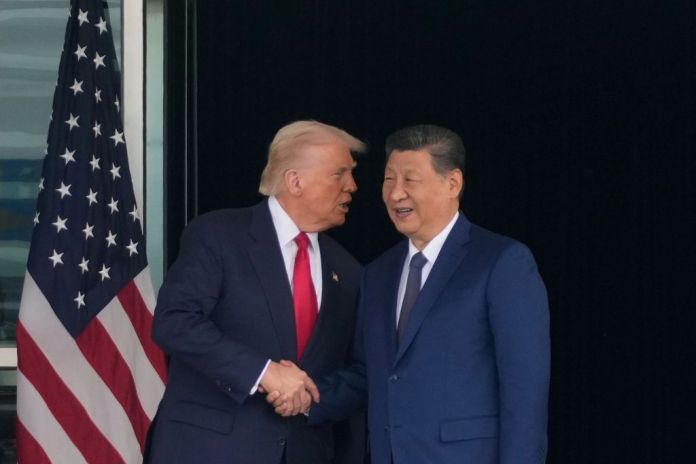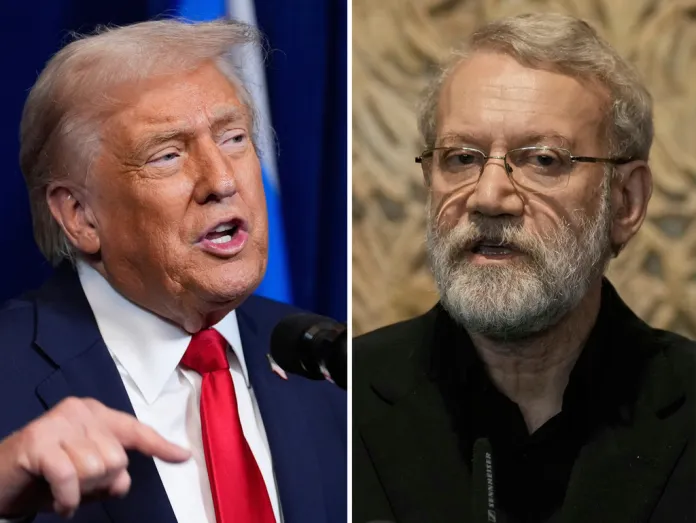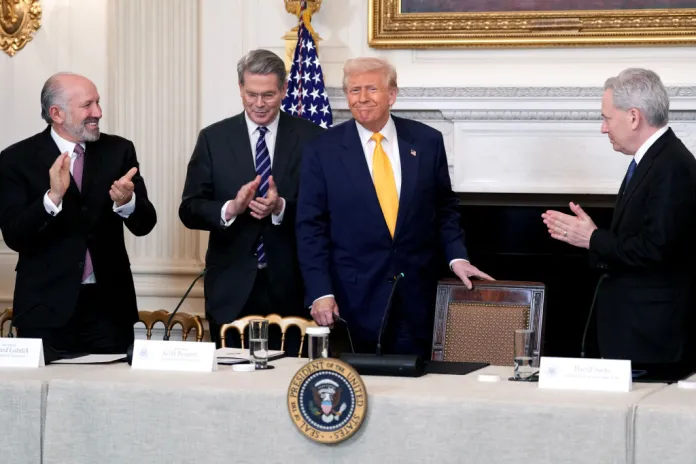Trump Must Resist CCP’s Attempts to Sabotage US’s Panama Deal
In March, BlackRock led a group of investors to secure U.S. control over two strategically important ports near the Panama Canal, previously operated by Hong Kong-based CK hutchison Holdings. This deal sparked opposition from China, which has pressured Panama to withhold approval unless a Chinese state-owned enterprise, COSCO, is included as a partner. The Panama Canal is vital for U.S. economic adn strategic interests, handling about 70% of goods linked to U.S. markets. China, through its Belt and road Initiative, has been expanding its influence in Panama and views the canal as a strategic asset to bolster its global presence.
COSCO, China’s fourth-largest shipping company, plays a key role in supporting the Chinese military’s logistics and is integral to Xi Jinping’s military-civil fusion strategy, which merges commercial and military capabilities. Taiwan has barred Chinese ships involved in military drills, including manny from COSCO, due to security concerns. The potential inclusion of COSCO in the Panama ports deal has raised alarms in the U.S. government, with officials warning that Chinese involvement in port operations would threaten national security and undermine U.S.control of the canal.
The article urges the Trump management to prioritize national security over trade compromises and resist Chinese attempts to interfere with U.S. interests in the Panama Canal. The author, helen Raleigh, is an American entrepreneur and writer with expertise on China-related issues, contributing to various national media outlets.
In March, the American financial powerhouse BlackRock announced that a group of investors it led had reached a deal with Hong Kong-based CK Hutchison Holdings to secure U.S. control over two strategically located ports operated by Hutchison at the Panama Canal. In response, China has been attempting to undermine this agreement. Beijing’s latest stance is to withhold its approval unless a Chinese state-owned enterprise is included as a partner in the deal.
The Panama Canal is a crucial gateway between the Atlantic and Pacific Oceans and is vital to the economic and strategic interests of the United States. Approximately 70 percent of the goods that pass through the canal either originate from or are destined for U.S. markets, making the U.S. the largest user of the canal.
China views the Panama Canal as a strategic asset for expanding its economic and geopolitical influence in Latin America. In recent years, Beijing has significantly increased its investments in Panama through its “One Belt, One Road” global infrastructure initiative, making it the second-largest user of the canal. This growing presence has raised national security concerns in the United States. Sen. Ted Cruz has pointed out that the two ports operated by CK Hutchison Holdings could serve as “ready observation posts” for China to monitor U.S. military and commercial activities passing through the canal.
In the event of military conflict between the U.S. and China, such as a dispute over Taiwan, there are fears that the Chinese military could block the passage of civilian and military ships through the canal. This disruption could threaten the U.S. economy and compromise national security.
Shortly after his election, President Trump vowed to regain U.S. control over the Panama Canal. Under pressure, Panama withdrew from China’s “One Belt, One Road” initiative in February of this year. Shortly thereafter, Hutchison announced that it would sell its stakes in more than 40 ports worldwide, including two near the Panama Canal, to a consortium led by BlackRock. President Trump hailed the deal as an early foreign policy victory in his efforts to “reclaim” America’s control of the canal. Reports indicate that Xi Jinping, general secretary of the Chinese Communist Party (CCP), was “angry” about the arrangement. China, exercising its influence over Hong Kong, has been exploring ways to obstruct the deal.
Beijing has shifted its approach recently, insisting that COSCO, a major state-owned shipping company, be granted equal partnership and ownership with BlackRock in the ports deal as a prerequisite for its approval. Why is COSCO’s participation in this deal so important to Beijing? As noted by Euclides Tapia, an international relations professor at the University of Panama, Beijing’s objective is clear: Through COSCO, it aims to exert dominance in global trade and forge a new maritime order.
As the world’s fourth-largest commercial shipping company, COSCO owns and operates several hundred container ships and vessels. The company also operates or has connections to more than 500 ports worldwide. The company’s global reach reportedly provides the People’s Liberation Army Navy (PLAN) with crucial support in logistics, supply, and evacuation. This partnership significantly enhances the PLAN’s ability to extend its influence into international waters beyond China’s jurisdiction, despite having only one overseas base in Djibouti, Africa. COSCO’s active participation in PLAN military drills around Taiwan underscores its strategic importance and the transformative role it plays.
COSCO’s close tie with the PLAN illustrates Xi Jinping’s ambitious “military-civil fusion” strategy, which seeks to convert China’s economic and technological prowess into formidable military capabilities. Under this strategy, COSCO is more than a commercial entity. In fact, it is a crucial extension of the PLAN.
In light of the implications of China’s “military-civil fusion” strategy, the Taiwanese government has recently taken proactive measures to protect the island’s safety. It has banned all Chinese civilian ships that participated in PLA military drills in the past, including many from COSCO, from entering Taiwan’s ports.
It is concerning that BlackRock, CK Hutchison, and other investors are in discussions to include a strategic partner from China, namely COSCO, in the Panama ports deal. Alarmed by this situation, Rep. John Moolenaar, R-Mich., chair of the Select Committee on the CCP, expressed his concerns in a letter to a senior Panamanian official. He stated, “The inclusion of COSCO — or any other Chinese company—in port operations or control along the canal would represent an unacceptable risk to the national security of both our nations. … A Panama Canal free of malign CCP influence would benefit the security of Panama, the United States, and Latin America as a whole.”
Rep. Moolenaar’s assessment underscores a crucial point: The inclusion of a Chinese state-owned shipping company in this port deal would not just alter the agreement’s original purpose but also jeopardize America’s control over this strategically vital gateway. The Trump administration, while open to certain compromises for a trade deal with China, must recognize that national security is a nonnegotiable priority. It is imperative that the administration stand firm, placing our national interests and regional security above all, and resist the CCP’s attempts to disrupt the Panama ports deal.
Helen Raleigh, CFA, is an American entrepreneur, writer, and speaker. She’s a senior contributor at The Federalist. Her writings appear in other national media, including The Wall Street Journal and Fox News. Helen is the author of several books, including “Confucius Never Said” and “Backlash: How Communist China’s Aggression Has Backfired.” Her latest book is the 2nd edition of “The Broken Welcome Mat: America’s UnAmerican immigration policy, and how we should fix it.” Follow her on Parler and Twitter: @HRaleighspeaks.
" Conservative News Daily does not always share or support the views and opinions expressed here; they are just those of the writer."




